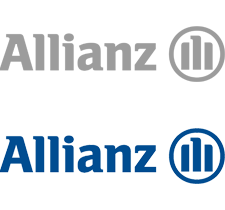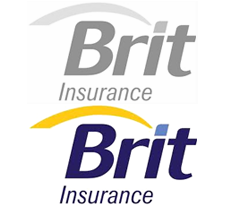Accidental Damage – Basically, we’ll cover everything that’s not excluded and will include things not covered by a traditional policy. Worth any extra premium and likely to be provided free in a competitive market place.
Addendum – A document setting out agreed alterations to an insurance contract. (See also endorsement).
Additional Premium – A further premium payable by the insured as a result of policy amendment, that may have increased the risk or changed the policy conditions or sum insured. Adjuster – One who investigates and assesses claims on behalf of insurers (claims adjuster or loss adjuster).
Administration Fees – A fairly recent development, introduced by brokers dissatisfied with commission earnings. The extra postage and paper costs resulting from compliance with FCA (see later) requirements have sometimes been blamed but £25 to send an incorrect and unchecked policy seems a little steep.
Advance Profits Insurance – Business interruption insurance of the expected profits of a new enterprise or an extension to an existing business.
Aggregate Limit Of Indemnity – The maximum amount an insurer will pay under a policy in respect of all accumulated claims arising within a specified period of insurance.
All Risks – Term used to describe insurance against loss of or damage to property arising from any fortuitous cause except those that are specifically excluded.
Assurance – A term interchangeable with insurance but generally used in connection with life cover as assurance implies the certainty of an event and insurance the probability.
Average – Not an assessment of the service standards in the insurance industry but a punishment if your sum insured isn’t high enough when you try to claim. Your claim settlement will reduce proportionately in line with any shortfall.
Book Debts Insurance – An archaic way of insuring losses incurred because your accounts ledgers have been destroyed by a fire and you don’t know who owes you money. It might still be relevant to someone, somewhere, but if it isn’t you, then make sure you’re not paying anything for the cover which insurers still seem very keen to provide.
Burglar Alarms – With police response a little questionable, if at all, it’s important that someone actually does something when the bell rings. There are no premium discounts for commercial systems but they will make you more attractive to insurance suitors if they are fitted and maintained by recognised bodies and ring at a control centre where response is guaranteed. Always obtain underwriter’s approval BEFORE committing to any system.
Business Continuity – How your business will continue after suffering a serious loss. This involves considering various scenarios that would affect the business, minimising the risk of occurrence and laying plans in case the worse happens. Something that will rarely work in isolation but should form part of a seamless link with robust risk management and a tailored insurance portfolio.
Business Interruption – A modern term for “Consequential Loss” (see later).
Cancellation – Termination of a policy before it is due to expire. There may be a cancellation clause in a policy setting out the condition under which the policy may be cancelled by notice. The period of notice could be anything from 48 hours to 3 months. In most cases this will result in a return premium being paid by the insurer to the insured.
Claims – Injury or loss to the insured arising so as to cause liability to the insurer under a policy it has issued.
Common Law – The common law consists of the ancient customs and usages of the land, which have been recognised by the courts and given the force of law. It is in itself a complex system of law, both civil and criminal, although it is greatly modified and extended by statute law and equity. It is unwritten, and has come down in the recorded judgements of judges who for hundreds of years have interpreted it.
Community Company – An insurance company whose head office is in a member State of the European Economic Community.
Computer Insurance – Covers some of the strange and technical things a standard policy doesn’t. May not be so important as it once was but the need really depends on how big and computer-dependent you are. Be careful, if you want to protect data, as we now have a fairly common policy requirement that back ups are taken daily and removed from site.
Concealment – Deliberate suppression by a proposer for insurance of a material fact relating to the risk, usually making the contract null and void.
Consequential Loss – What happens to your business after the fire, flood etc. You will need to project estimated gross profit or fees into next year for adequate cover but, be careful – the insurance definition of gross profit may not be the same as yours.
Cover Note – A document issued to the insured confirming details of the insurance cover placed. Some cover notes are a legal requirement, e.g. motor.
Day One – Introduced by the insurance market in the eighties to combat the raging inflation which meant a property could become underinsured between the time of the fire and the time a rebuild was completed. Many policies are still on a “Day One 30%” basis which means you’re paying 15% more than you need to for adequate protection. Demand a recount from your brokers.
Deductible – The specified amount a loss must exceed before a claim is payable. Only the amount which is in excess of the deductible is recoverable.
Deferred Premium – The part of a premium which, following agreement with underwriters, is payable by instalments, usually quarterly or half yearly.
Direct Sellers – These are the companies, mainly in the personal sector that “cut out the middle man”.
Directors & Officers Indemnity (D&O) – According to many brokers the latest “must have” extra. Protects management from claims arising from mismanagement. Worth considering but suggest you ask your broker, without referring to cases involving PLCs, why your company needs one of these.
Earthquake – Very unusual for house insurances not to have the cover as standard but will need to be noted as a “peril” (see later) under a commercial policy.
Employers Liability Insurance – Insurance by employers in respect of their liability to employees for injury or disease arising out of and in the course of their employment. With some exemptions this insurance is compulsory in Great Britain, and can only be provided by an authorised insurer.
Endorsement
Excess – The first portion of a loss or claim which is borne by the insured. An excess can be either voluntary to obtain premium benefit or imposed for underwriting reasons.
Exclusion – A provision in a policy that excludes the insurer’s liability in certain circumstances or for specified types of loss.
Ex-Gratia Payment – A payment made by an insurer to a policyholder where there is no legal liability so to pay.
Fidelity Guarantee – Not as common as it once was, but intended to protect a firm from losses suffered as a result of dishonesty of employees.
Financial Ombudsman Service – A bureau established by major insurance companies to oversee the interests of policyholders whose complaints remain unsolved through normal company channels of communication. The service is available to all those holding personal cover with the insurers who have joined the scheme. The decision of the Ombudsman is binding on the insurer, although the insured may appeal to the court if he so wishes.
Financial Services Authority (FSA) – Industry regulatory body.
Fire Risk Assessment – To be undertaken by a “responsible” person and, in writing, if 5 or more people involved. Regular reviews and updates are required.
First Loss Insurance – Insurance where the sum insured is accepted to be less than the value of the property but the insurer undertakes to pay claims up to the sum insured, without application of average.
Fleet Insurance – Market competition has made even the worst company drivers attractive but earn extra bonus points for good fleet management and accident reporting systems.
Flood – The Environment Agency’s two dimensional maps have caused a great deal of confusion. The house on a cliff top will be designated high risk due to its proximity to the sea. Increased premiums and excesses are now applied in some areas à la subsidence (see later).
Gross Premium – A term normally applied to gross written premiums before deduction of brokerage and discounts.
Hazard – A physical or moral feature that introduces or increases the risk.
Hot Work Permit – Sets out the rules and regulations required for “hot work” on a premises – even your own. All about good risk management and prevention of fire.
Inception Date – The date from which, under the terms of a policy, an insurer is deemed to be at risk.
Increase In Cost Of Working – Under a business interruption policy some cover is provided for additional expenditure incurred by the insured solely for the purpose of reducing the shortage in production following an insured event.
Indemnity – A principle whereby the insurer seeks to place the insured in the same position after a loss as he occupied immediately before the loss (as far as possible).
Indemnity Period – Under a business interruption insurance the period during which cover is proved for disruption to the business following the occurrence of an insured peril. Independent Financial Adviser (IFA) – Dispenses advice about which mortgage, life assurance or pension is best for you.
Insurable Interest – For a contract of insurance to be valid the policyholder must have an interest in the insured item that is recognised at law whereby he benefits from its safety, well being or freedom from liability and would be prejudiced by its damage or the existence of liability. This is called the insurable interest and must exist at the time the policy is taken out and at the time of the loss. Insurable Value – The value of the insurable interest which the insured has in the insured occurrence or event. It is the amount to be paid out by the insurer (assuming full insurance) in the event of total loss or destruction of the item insured.
Insurance Broker/Intermediary – An insurance intermediary who advises his clients and arranges their insurances. Although he acts as the agent of his client, he is normally remunerated by a commission (brokerage) from the insurer. An insurance broker is a full-time specialist with professional skills in handling insurance business. Since January 2005 intermediaries and brokers must be registered with, and regulated by the Financial Services Authority.
Insurance Premium Tax – The Finance Act 1994 introduced this new tax on most general insurance risks located in the UK.
Insured – The person whose property is insured or in whose favour the policy is issued.
Insurer – An insurance company or Lloyd’s underwriter who, in return for a consideration (a premium) agrees to make good in a manner laid down in the policy any loss or damage suffered by the person paying the premium as a result of some accident or occurrence.
Knock For Knock – A forbearance agreement between two insurance companies designed to avoid legal action. This arrangement applies to motor vehicle policies and under it each company agrees to pay up to the limits of their respective interests for the damage to the vehicle of their own insured without regard as to who was to blame for the accident.
Lapse – The non-renewal of a policy for any reason.
Latent Disease – An illness which lies dormant for some years before manifesting itself.
Leases – These set out who does what to whom when you move into a building owned by someone else. Always check out whether the building’s policy arranged by the landlord meets your needs, as any shortfall will affect the ability of your own business to carry on trading.
Limit – The insurer’s maximum liability under an insurance, which may be expressed ‘per accident’, ‘per event’, ‘per occurrence’, ‘per annum’, etc
Lloyd’s (Of London) – A Society, incorporated under Act of Parliament of 1871 and known as the Corporation of Lloyd’s, which provides the premises a wide variety of services, administrative staff and other facilities to enable the Lloyds market to carry on insurance business efficiently.
Lloyd’s Broker – A broker approved by the Council of Lloyd’s and thereby entitled to enter the underwriting room at Lloyd’s and place business direct with underwriters. Lloyd’s brokers must meet the Council of Lloyd’s stringent requirements as to integrity and financial stability. They have to file annually with the Council of Lloyd’s a special accountant’s report concerning their financial position.
Loss – Another term for a claim.
Loss Adjuster – Independent qualified loss adjusters are used by Insurers for their experience and expertise necessary to carry out detailed and in some instances prolonged investigations of complex and large losses. Although the adjuster’s fees are invariably paid by the insurers he is an impartial professional person and makes his judgement on the amount to be paid in settlement solely on the basis of established market practice. It is his task to negotiate a settlement which is within the terms of the policy and equitable to both insured and insurer. Should he himself not be an expert in a particular discipline which is necessary or desirable to pursue his negotiations, he will consult or employ such an expert.
Loss Assessor –
Malpractice Indemnity – Relevant to clients in the care sector or where the administration of care in its widest sense is an integral part of the business activity.
Material Damage Warranty – A warranty in a business interruption insurance policy stipulating that for the interruption insurance to become effective there must be a policy in force in respect of the material damage and a claim paid or admitted thereunder for such damage caused by an insured peril.
Material Fact – Any fact which would influence the insurer in accepting or declining a risk or in fixing the premium or terms and conditions of the contract is material and must be disclosed by a proposer, or by the insurer to the insured.
Minimum Security Requirements – Now fairly common on any policy covering material risks. The requirements are prescriptive and assume all premises are protected by modern door and window locks. The let out is “or as approved by insurers”, so important to supply protection details to your broker to argue your case before the event, not after.
Motor Insurance Database – A register of who owns what car. Insurers keep this up to date for private car owners but businesses have to do this themselves at the risk of a fine if they don’t. Name – Another term for an underwriting member of Lloyd’s.
Negligence – Perhaps the most common form of tort. In Blyth v Birmingham Waterworks Co. (1856) it was defined as ‘the omission to do something which a reasonable man guided by those considerations which ordinarily regulate the conduct of human affairs would do, or doing something which a prudent and reasonable man would not do’. Gives rise to civil liability.
Net Premiums – Term variously used to mean gross premiums net of reinsurance premiums payable, or commission, brokerage, taxes, or any combination of these.
New For Old – Where insurers agree to pay the cost of property lost or destroyed without deduction for depreciation.
No Claims Bonus (Or Discount) – A rebate of premium given to an insured person by an insurer where no claims have been made by that insured. Very common in motor insurance.
Non-Disclosure – The failure by the insured or his broker to disclose a material fact or circumstance to the underwriter before acceptance of the risk.
Office Insurance – Will cater for most clerical professions and cover all material and liability risks in a single package. A bit inflexible if higher sums insured are needed for computers, even if they are spread over ten floors.
Passenger Liability – The liability of a carrier to passengers.
Peril – A contingency, of fortuitous happening, which may be covered or excluded by a policy of insurance.
Period Of Risk – The period during which the insurer can incur liability under the terms of the policy.
Permanent Health Insurance – Term used to describe contracts of insurance providing continuing benefits in the event of prolonged illness of disability.
Personal Accident And Sickness Insurance – Insurance for fixed benefits in the event of death or loss of limbs or sight by accident and/or disablement by accident or sickness. Accident and sickness may be insured together or separately.
Policy – A document detailing the terms and conditions applicable to an insurance contract and constituting legal evidence of the agreement to insure. It is issued by an insurer or his representative for the first period of risk. On renewal a new policy may well not be issued although the same conditions would apply, and the current wording would be evidence by the renewal receipt.
Policy Conditions – Rules of the game related to your insurance.
Policy Holder – The person in whose name the policy is issued. ( See also insured and assured).
Pre – Existing Medical Conditions – You should tell your broker or insurer about any illness you are currently suffering from, or have already had, even in the past. . These are known as pre existing medical conditions. For Private Medical Insurance, you will not normally be covered for these conditions, but for Travel Insurance, the Insurer may be able to offer cover, sometimes for a higher premium.
Premium – The consideration paid for a contract of insurance.
Premium Funding – Provided by people such as Premium Credit and Close Brothers who pay your premiums to insurers and then collect it back from you over 6 or 10 months. Interest rates vary, depending on the amount “borrowed” and the extra bit added by brokers for arranging the deal.
Products Liability Insurance – These policies cover the insured’s legal liability for bodily injury to persons, or loss of or damage to property caused by defects in goods (including containers) sold, supplied, erected, installed, repaired, treated, manufactured, and/or tested by the insured. Professional Indemnity Insurance – This policy protects a professional man against his legal liability towards third parties for injury, loss, or damage, arising from his own professional negligence or that of his employees.
Proposal Form – A form sent by an insurer to a person requiring insurance so as to obtain sufficient information to allow the insurer to decide whether or not to accept a risk and what conditions to apply if it is accepted.
Public Liability – Provides protection for claims made against you for injury or damage to third parties or their property arising from your negligence or alleged negligence. No business should be without it, especially as the cover includes the costs of defending any action brought against it.
Quote – A statement by an insurer of the premium he will require for a particular insurance.
Renewal – The process of continuing an insurance from one period of risk to a succeeding one.
Risk – The peril insured against or an individual exposure.
Risk Assessment – Not just from a health & safety perspective but the assessment of all the risks faced by a business, recording them and taking the necessary action.
Risk Management – The identification, measurement and economic control of risks that threaten the assets and earnings of a business or other enterprise.
Salvage – A recovery of all or part of the value of an insured item on which a claim has been paid. The insurer will normally dispose of the item and apply the proceeds to reduce the cost of the claim.
Schedule – The part of a policy containing information peculiar to that particular risk. The greater part of a policy is likely to be identical for all risks within a class of business covered by the same insurer.
Statement Of Fact – An alternative to a completed proposal form. A statement provided by the insurer clarifying the basis on which insurance is accepted and what conditions apply.
Statute Law – Presently the most important source of law is statute law, otherwise known as Acts of Parliament; which may create entirely new law, over-rule, modify, or extend existing principles of common law and equity, and repeal or modify existing Statute law.
Stock Declarations – A way of paying premium on the average stock held during the year rather than the maximum at any one time. You also only pay an initial deposit premium on 75% of the sum insured. Ideal where stock values fluctuate during the year.
Storm – Heavy rainfall isn’t a storm. We need to have evidence of strong winds and some associated damage. Water coming in as a result of age or wear and tear on a flat roof, isn’t a storm either. Subject To Survey – Phrase used by an insurer to signify provisional acceptance of an insurance pending inspection by a surveyor whose report is necessary to determine the rate and conditions applicable.
Sum Insured – The maximum amount payable in the event of a claim under contract of insurance.
Third Party – A person claiming against an insured. In insurance terminology the first party is the insurer and the second party is the insured.
Third Party Liability – Liability of the insured to persons who are not parties to the contract of insurance and are not employees of the insured.
Travel Insurance – Primarily, to pick up costs of emergency medical expenses abroad but includes lots of other cover. Be careful, that you don’t duplicate any cover provided by your house insurance as the travel insurer will look for a contribution to any claim. You can also save yourself 20% by not covering the baggage you are likely to be insuring under the house policy.
Underlying Insurance – The primary insurance as distinct from excess insurance.
Underwriter – A person who accepts business on behalf of an insurer. (See also Lloyd’s underwriter).
Utmost Good Faith – Insurance contracts are contracts of utmost good faith (uberrima fides), which means that both parties to the contract have a duty to disclose, clearly and accurately, all material facts relating to the proposed insurance. Any breach of this duty by the proposer may entitle the insurer to repudiate liability.
Vis Major (Act Of God) – Nugent v Smith (1876) “Natural causes directly and exclusively without human intervention and that could not have been prevented by any amount of foresight and pains and care reasonably to have been expected”.
Warranty – A very strict condition in a policy imposed by an insurer. A breach entitles the insurer to deny liability.
Wear And Tear – This is the amount deducted from claims payments to allow for any depreciation in the property insured which is caused by its usage.
Without Prejudice –






